#Scandinavian Economy
Explore tagged Tumblr posts
Text
Townhall: Daniel J. Mitchell: Is America Doomed to Become a Failed European-Style Welfare State?
Source:The New Democrat One thing I tend to agree on with Progressive economists on is that there isn’t any magic number to attach to how big the public sector has to be or how small it has to be that is the signal that government is too big and must be trimmed down. Before the Great Recession, America was doing very well economically for about 25 years, with a few slow-downs in between and…
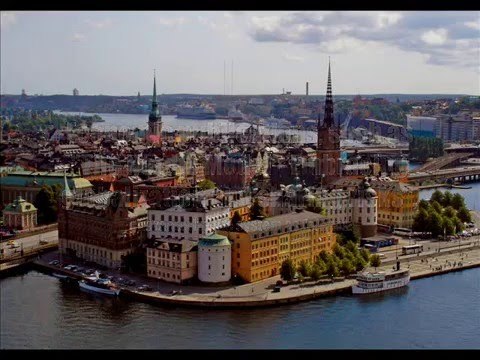
View On WordPress
#American Economy#Daniel J. Mitchell#European Economy#National Governments#Private Sector#Public Sector#Scandinavian Economy#Social Insurance#Welfare State
0 notes
Text
Unboxing Turkish Airlines Economy Class (TK1752 & TK1889) OSL-IST-VIE
Imagine being told that your flight back home was cancelled due to a strike just 2 days before departure. What to do? As fate turned out, we ended up flying Turkish Airlines instead. The replacement (by our own means) flight took us to Istanbul via Oslo, before we headed back to Europe to Vienna, Austria. The 3-sector flight was on Scandinavian Airlines (SAS) and Turkish Airlines, via Economy…
#A321#Airbus#Austria#Economy Class#flight review#introverted traveller#Istanbul#live life love#Norway#Oslo#Scandinavian Airlines#travelogue#Turkey#Turkish Airlines#Vienna
0 notes
Text
There's a real unearned confidence to the way that Social Democrats talk about their ideology, like they've cracked the code and found the perfect way forward and the only reason people disagree is because they're misguided or evil. Like they'll correctly point out problems within Neoliberal Capitalism before spouting some absolute nonsense about how uniquely evil and dysfunctional Communism was (nearly always in the past tense too; they take it for granted that the end of the USSR was the end of all Communism) and then going "Don't worry though, there's a third way; a mixed regulated economy. We can have a free market in consumer goods while making sure that corporations pay their fair share in wages and taxes that can fund the welfare that looks after everyone". And like putting aside the fact that such a model relies on the super-profits of imperialist exploitation to actually function, and the inherent instability of an arrangement where the Bourgeoisie make concessions even while maintaining ultimate control of the economy, there's the simple fact that much of the Imperial Core did indeed had Social Democracy but does not anymore.
Like these Social Democrats never think about why that might be, why their ideology failed and what they can learn from it going forward. They just act as though some dumb individuals (i.e. Ronald Reagan, Milton Friedman etc.) managed to slip into power and make bad decisions and like the best way to fix this is to vote good people in who'll change it back. Like hell a lot of these people take the previous existence of these policies as like a good point, the whole "We had them before so we aren't being radical by wanting them back. We don't want anything crazy we just wanna bring back The New Deal or Keynesian Economic policy or whatever". There's never any thought about why those policies failed (how often do you hear these people even talk about "stagflation" or "the oil crisis" let alone the impact of the fall of the soviet union) and what implications this might have on the viability of bringing it back. They also love talking about how Social Democratic institutions are still largely intact in the Scandinavian countries, but rather than even consider what specific factors in their political-economic situation led to this these people just go "Damn isn't Sweden great. Why aren't we doing exactly what they do?"
And sure some people might compare this to Marxism-Leninism, the whole "trying to bring back a defeated ideology", but for one it's stupid to treat the dissolution of the USSR as the end of Communism as a global political force. It may have been a major blow, but even if you write off like Cuba and Vietnam as too small and insignificant to matter you can't just fucking ignore that over 1/6 of the world's population continues live under a Marxist Leninist party. Whatever concessions these countries may have made to global Capitalism, it's just plain ignorant to act as though Communism suffered anywhere near the humiliating loss of global power and credibility that Social Democracy has. Sure the latter may be more politically acceptable to toy with in "The West", but "The Western World" ≠ The Entire World. Also, nearly every ML on the planet is painfully aware that Soviet Communism collapsed and that it collapsed for a reason. There might be plenty of contention about why exactly it died and what exactly we can learn from this, but nearly everyone agrees that we need to learn and ideologically grow. No serious Communist wants to "bring back the USSR" in the same way that many Social Democrats want to "bring back The Welfare State". Far from being a form of "best of both worlds" mixed economy, Social Democracy is nothing more than a flimsy tool to stabilise Imperialist Capitalism at its moments of greatest strain. And if people are still gonna promote it wholeheartedly as the best possible solution, I wish they'd be a little less arrogant about it. It's not as though they have history on their side
336 notes
·
View notes
Note
Eeeeee! I'm so glad you're back. I always end up down loading your drawings just so I can save them and be happy!
Also, please tell us more/draw poor sick kalmar union Noway if you'd like? No pressure, ofc, I just love historical hetalia stuff. <3
Heyy! Please, go ahead, I'm glad to hear my art makes you happy. And sure, I can share some ideas I have about Norway during that time! But I didn't know what to draw for this prompt, will you forgive me?
A little history lesson is probably in place. Norway was a mighty kingdom during the Middle Ages; having overseas territories and the mainland extending all the way to the Kola Peninsula and parts of modern-day Sweden. But by the 14th century, the Scandinavian royal families were extremely intermingled. After the Fairhair dynasty's male lineage died out in 1319, the throne of Norway passed to Magnus VII, who in the same year became elected as king of Sweden as well, merging the two kingdoms into a personal union briefly - until Magnus' sons inherited their separate kingdoms. Magnus' younger son, Haakon VI, inherited Norway as his realm and ended up marrying the Danish princess Margaret, who'd eventually unite all the Scandinavian kingdoms under one crown and form the Kalmar Union in 1397.
However, earlier in 1349, the Black Death arrived in Norway through trading ports and hit the country devastatingly, killing over 60% of the population. Notably, the plague hit all classes of society, even the nobility and clergy. As a result, many powerful Norwegian noble families died out, straining Norway's position among the European powers. But perhaps more devastatingly to the nobles, farmsteads, if not entire villages, around the kingdom died out as a result of the plague, weakening rent and tax revenue. All of this left the Norwegian monarchy weakened in terms of manpower, noble support, defense, and economic power.
Though Norwegians rebelled a few times against the Danish-favored policies during the Kalmar Union, the Norwegian population and the Council of State were still too weak to secede from it. Sweden left the union in 1521, but the Norwegians couldn't do the same, due to their military inferiority to Denmark at the time. During the reformation battles, King Christian III orchestrated an invasion of Norway in 1537 and incorporated the country as a puppet kingdom under Denmark.
"The diminished Norwegian nobility was not able to protect the political rights of Norway in the Kalmar Union and the military power was lost to Denmark who used mercenaries from Germany; the Norwegian merchant class lost their power of the Norwegian economy to the German merchants of the Hanseatic League who established themselves in Bergen; and the dead Norwegian officials were replaced by German and Danish officials appointed to administer Norway for Denmark; all of which has been described as the decline of Norway under the Danish dominance of the Kalmar Union." [x]
And on that note...
I think all of this historical context about the country could be reflected in Sigurd's (Norway) character. His horrible health condition could explain his role shifting in the family, which left him in Magnus' (Denmark) and Björn's (Sweden) shadow for centuries to come.
Due to his poor health, Sigurd could not attend meetings, which led to decisions being made without his presence. Also due to his health, many of his former roles and responsibilities were given to other people, cutting his purpose in the union. He also couldn't work a job to sustain himself, so he had to rely on other people to keep him afloat, which only worsened his situation and made him financially dependent on others. All of a sudden his attendance or opinion didn't matter because his opinion could be outvoted by others in (and out) of the union. He was probably also unaware of agreements and plans that were not formally discussed, giving him reason to believe he was lied to or purposely kept in the dark about things that also concerned him.
While Magnus had found his place among other Nations, maintaining relations and seemingly enjoying his position, Sigurd couldn't do the same. Being bedridden and weak made maintaining friendships beyond the household practically impossible. Crashing down from his peak, and not being able to meet the expectations he once was meeting, would certainly affect Sigurd's mindset and self-image negatively. He was embarrassed and hid, sheltering himself basically. While Sigurd and Björn had grievances certainly even back then, I feel like they could still relate to one another, if not through their circumstances then through perspectives, which made them extremely close. They both had a harder time adapting to change, at least when compared to Magnus.
54 notes
·
View notes
Text
— Absentee Empires: The Absence of Ottoman Influence in the Grishaverse and Its Potential Depth and Complexity
@aleksanderscult @siriuslyobsessedwithfiction @stromuprisahat @black-rose-writings Please share your thoughts on this—I’d love to hear your opinions!
One aspect of the Grishaverse that truly frustrates me is the absence of a nation inspired by the Ottoman Empire and the Arab world.
We have six well-defined nations—Ravka influenced by Imperial Russia, Fjerda drawing from Scandinavia, Shu Han reflecting elements of China and Mongolia, Kerch resembling the Netherlands, Novyi Zem based on the Americas, and the Wandering Isle inspired by Celtic cultures. But somehow, there’s no representation of the Ottoman Empire? It feels like a significant oversight, especially considering the empire's substantial power during the 16th century and its enduring influence into the 18th and 19th centuries, even amidst its decline.
While the Grishaverse hints at other “colonies” beyond the main nations, that doesn’t quite make up for the lack of an Ottoman-inspired culture. Just think about the richness it could have added! An Ottoman-inspired nation could have been filled with intricate politics, vibrant culture, and a fascinating history of diplomacy—especially with Ravka as a neighbor. The Ottomans had a complex and often contentious relationship with Imperial Russia, which included both trade and warfare. Imagining Ravka’s brooding intensity interacting with a nation influenced by Ottoman culture could have created such a thrilling dynamic, rich in both conflict and collaboration.
At first, I thought maybe some elements of Ottoman culture were reflected in Shu Han. But it’s pretty clear that Shu Han is primarily inspired by Mongolian and Chinese influences, making that connection a bit of a stretch. This feels like a missed opportunity, considering the Ottoman Empire was vast and influential, controlling significant parts of Southeast Europe, Western Asia, and North Africa. At its height, it was one of the world’s most powerful empires, playing a crucial role in European and Middle Eastern politics.
The potential for conflict between Ravka and an Ottoman-inspired nation would have been especially compelling. The 18th and 19th centuries saw numerous wars between the Ottoman Empire and Russia, primarily over territory in Eastern Europe and the Black Sea. These Russo-Turkish Wars significantly shaped the geopolitical landscape of the region. Instead of a straightforward narrative, we could have seen intricate power dynamics where alliances constantly shifted, leading to moments of both tension and unexpected cooperation. Imagine the political intrigue and skirmishes we could’ve witnessed…Instead of a simple “Good vs. Evil” narrative, we could have had layers of complexity, like “Who’s backstabbing whom today?” or “Are we trading grain or are we going to war?!”
But despite their military conflicts, the Ottoman Empire and Imperial Russia maintained a complex relationship that involved significant trade. As neighbors with intertwined economies, they exchanged goods like grain and textiles while competing for influence. A similar relationship in the Grishaverse could have added depth, showcasing how economic interdependence can exist alongside rivalry.
Additionally, the relationship between the Ottoman Empire and Fjerda could have been more diplomatic and friendly, especially given the historical context of increased interactions between the Ottomans and Scandinavian powers. The Danish and Swedish crowns sought to establish formal relations to protect their trade interests and gain support against regional rivals like Russia and Poland. For example, during the Great Northern War, Sweden sought support from the Ottomans against Russia. Although no significant military alliance was formed, the prospect of cooperation was explored. Diplomatic missions often resulted in the exchange of knowledge about military tactics, geography, and culture, enriching both sides’ understanding of each other. The relationship between the Ottoman Empire and Scandinavian countries was multifaceted, involving trade, diplomacy, and cultural exchange that could have deepened the tension between Ravka and the Ottoman-inspired nation. You know the saying, "the enemy of my enemy is my friend"? The Ottoman nation would have taken that to heart!
Finally, an Ottoman-inspired nation might have treated Grisha in a way that reflects the Ottoman Empire’s approach to its minorities, offering some autonomy under a millet-like system but with enough restrictions to keep everyone on their toes. You know, like “You can have your own laws, but only if you don’t annoy us.”
In conclusion, the absence of an Ottoman Empire or Arab-inspired nation in the Grishaverse represents a missed opportunity to enrich the narrative with the complex dynamics and vibrant cultures that characterized these historical realms. The interplay between an Ottoman-inspired nation and Ravka could have introduced captivating political intrigues, cultural exchanges, and historical rivalries that would elevate the storytelling. The rich history of the Ottoman Empire—its intricate relationships with neighboring powers, its approach to trade, and its treatment of minorities—offers a wealth of material that could have added depth and complexity to the Grishaverse.
Ultimately, incorporating such a nation could have not only enhanced the world-building but also provided a platform to explore themes of power, identity, and coexistence in a compelling way, making the Grishaverse an even more engaging and multifaceted universe.
Any comments or opinions are appreciated it !!!
#idk everytime I re-read the books#or even watch the show#I think of this#and the missed opportunities#grishaverse#grisha trilogy#shadow and bone#the crows#the darkling#nikolai lantsov#kaz brekker#ravka#fjerda#shu han#kerch#leigh bardugo#aleksander morozova#general kirigan#alina starkov#genya safin#grishaverse meta#ruin and rising#siege and storm
84 notes
·
View notes
Note
Okayokayokay so I was thinking smth like you're a friend of bams who gets dragged along with most of his adventures which leads to you meeting ville and he just. Instantly is like 'that ones mine, when do you want to move to Helsinki with me' kinda similar to yr bam x model!reader fic iykwim?
Love You To Death
Having Bam Margera as a friend also means you get dragged along on whatever project he’s working on, most recently leading you to Finland, where you would get caught up in something you couldn’t even imagine.
Ville Valo X Fem!Reader (slight Bam Margera X Ville Valo if you squint?)
(Angst, fluff)
3.2k Words
Warnings: Highly suggestive content, alcohol, smoking, manipulation, power imbalance, fighting, toxic relationships
An: Thank you so much for your request! I always love writing for kind of messed up relationships such as this one and would be happy to do a sequel! This is my first time writing a Ville centric fic so lmk what you think! Thank you for the request and please keep sending them!
Being a part of Bam’s crew and following him around everywhere only served to reinforce one fact: you were nobody special. He always claimed that your little group was a package deal, but who was the one always always getting followed by cameras and reporters? Certainly not you, or Ryan, or god forbid Novak. Bam was getting all the product deals, all the interviews, all the chicks. It was no wonder that after years of watching from the sidelines, you were a little jealous. But while you were filming together, you usually tried to push that aside.
“He’s, like- the Elvis of Finland, Y/N!” You were flying out to Europe to film this music video, and Bam had been excitedly gushing about something or other the whole time- this rock star he wanted to introduce you to, but you were pretty clearly not paying much attention. “Chicks pass out when he walks down the street! They’re, like- my favorite band.” Yeah, because if Bam’s a fan of something, that means it’s good. You nodded, sitting back in your economy class seats while you tuned him out.
It was the dead of winter, so Helsinki-Vantaa was completely decked out in Christmas decorations as you touched down, making the whole airport glow amber in the dark blue night- what a sight to wake up to.
☆彡
Half asleep, you were still blinking awake as you arrived at a dim, seedy looking rock club in the center of the city- some place called Tavastia. The bouncers outside took one look at Bam and quickly ushered you guys over to this side entrance, giving him his usual celebrity treatment. Following him to where the band was hanging out backstage, you had to do a double take when you saw that tall stranger sprawled out on the couch, idly smoking his cigarette with half lidded eyes. His eyes flicked up to meet yours first before darting towards Bam, who was standing with a hand held out to pull him to his feet, “Hey, man! What’s up?” There were traces of pink lipstick left on his cigarette as this beauty of a man took a drawl, shrugging, “Nothing much.” His eyes fell on you again as he looked you up and down as he talked with Bam in that low, totally chill register, “Who’s this?”
He introduced you to each other: Y/N, this is Ville. Ville, this is Y/N. Honestly, you misconstrued his subtle flirting as him just being nice- you chalked up how he said it was a pleasure to meet you and the way he kept looking back to you while Bam was excitedly going on about the new video as Scandinavian hospitality, if that’s a thing. You were so oblivious. The roar of the excited crowd was a mere rumble from where you were, and as the band got their cue to head out onstage, Ville shot you a wink as he slipped out the door.
You know that phonemenon where someone goes to a concert and they swear back and fourth the singer was making eye contact with them the entire time? Well, you were pretty sure Ville’s eyes didn’t leave yours for the entire set. He was gazing at you as if you were the only person in the entire world. However, you were pretty oblivious to this- all you were really paying attention to was the music. In fact, Bam noticed this even before you did, though at first he did think he was staring at him before that great, looking from one person to the other realization moment.
☆彡
He didn’t bring it up until you were stepping outside and getting into the waiting taxi, “How are you this oblivious?” Pulling your coat shut as you shook the snow out of your hair, you stepped down into the cab, “Huh?” Bam reached into his pocket, shoving a handful of twenty euro notes at the driver before turning to you, “Dude! He was givin’ you the eyes all night! Did you seriously not know he was into you?” The edge in Bam’s voice struck you as odd, but you were certainly listening now. “If I was in your shoes, Y/N- I’d be all over that shit in a heartbeat.” You still didn’t believe what he was saying. Why would a man like Ville- a man as famous as him (and as adored by women as him) want anything to do with you? You are barely a B list star in America. You weren’t a model or a pop star or anything- you got famous for hanging out with a guy who was fameous, which was nothing. Turning to look out the window as the snow flurried by in the pitch black night, you shrugged as the car sped off.
Bam received a phone call that night- from Ville, of course, grilling him for everything he knew about you. “From the moment I saw her, we had this…connection.” He mused, speaking in that flowery way he did when he was very passionate about something, “I have to have her. I’m sure you know what I mean, right?” Hushing the shock in his voice so he wouldn’t wake you, he leaned in close to the receiver, “Hold your horses, man- you just met her!” Oh, it’s not as if he would understand how he felt about you. Compared to him, Bam was a teen boy when it came to romance. But Ville’s fame usually got him what he wanted and, not wanting to appear lame in front of a man he respected so much, it only took a little priding to get your friend to eventually spill all the information he needed.
It was only a surprise to you when you discovered what was waiting in front of your hotel room door the next morning. A bouquet of flowers- your favorite flowers, which definitely weren't in season that time of year- bundled together with a black, silk ribbon. You examined them curiously, turning over the attached card and gasping when you saw who it was from. Maybe Bam was right about that.
★彡
Bam was in director mode the entire time you tagged along with him to the shoot, which is a nice way to say he was being a meticulous jerk. There was this whole production setup, with all these big cameras and mics and wires strewn about the floor- real professional looking, nothing like the run and gun camcorder stuff you were used to. It was dazzling enough to walk through this huge, baroque manor in the middle of the Czechian countryside, but to film in it?
Now, you didn’t catch the beginning of this argument, but while you were drooling over the fancy equipment, you heard something about the European model chick they were intending to have in the video running late. Despite this, Ville seemed surprisingly nonchalant about the situation as he reasoned with Bam, “Why don't we just use her?” Bam huffed out some response about how expensive it was to get this lady and Ville’s eyes wandered over to you, “I mean,” Ignoring him, he looked you up and down, speaking barely loud enough you could hear him, “she’s already very beautiful- She wouldn’t need very much hair and makeup.” Bam gave up his protest and went over to begrudgingly drag you to the makeup tables, mumbling something about this only being a practice run. All of this was leaving you confused and far more flustered than you could care to admit.
You weren’t sure what to make of everything that was happenings, and Bam’s very barebones direction of ‘be sexy’ right before the camera started rolling wasn’t helping much. It also didn’t help that you had this absolutely angelic man in front of you, serenading you completely shirtless. This is the kind of thing middle aged women read paperbacks to expereince, and there you were. While you tried your damndest to act all minxy (and frankly failing at it), Vile was so effortlessly confident. This incubus was bewitching you, and you were falling for his spell.
☆彡
That night, after the shoot, the three of you met up at the pub down the road. Ville greeted you with one of those cute European double cheek kisses, your skin being warmed by the yellow streetlamp you were standing underneath. Bam, who was standing right next to you, turned his face in anticipation, but the only thing he received from Ville was a friendly pat on the back (which was more of a shove) towards the door, “The bar’s that way! Go get yourself a drink.” It sent him stumbling ahead of you two and he looked back with bewilderment as you felt an arm slip around your shoulders. Despite the fact that you looked an awful lot like a couple, you didn’t mind being seen with this eye candy. Walking with Ville by your side was like walking through a dream. These beautiful women and beautiful men that lined the dark, wood paneled halls of the old pub all greeted him with admiration as you made your way to the bar. Some of the bolder women even reached out to touch him with fond, feather light caresses as he passed by, which he didn’t seem to mind in the slightest.
“You were wonderful today, Y/N.” Ville took the seat next to yours at the bar, leaning against the counter as he spoke in that mesmerizing way he did whenever he was talking to you, “Honestly, we’re thinking of using that take in the final video- you were much better than that model.” Your eyes went wide, and so did Bam’s as he leaned around you, “What’re you talking about? She was great!” This whole music video business was drawing a wedge between the two of them, and you were caught in the middle of it. Bam waved his hands to dismiss the notion. “Whatever- you know what?I think it went really well today.” It was odd- if it was anyone else but Ville he was taking to, you knew he would’ve stood his ground a little more. Even the way he talked around him was different. Bam shrugged, taking a swig of his beer to look nonchalant, “I just got some editing to do tomorrow and I should have somethin’ by the end of the day.” Your attention was drawn away as, leaning in towards you to be heard over the chatter of the bar, Ville murmured close to your ear, “Maybe while Bam’s busy doing that, I could show you around Helsinki tomorrow. Hmm?”
Well, how could you say no to that?
★彡
The next morning, Ville picked you up in front of your hotel and took you around to these beautiful, romantic spots. One among the many you visited was this gigantic church: Helsinki Cathedral, he told you it was called. Up the marble steps, you wandered about the stark, white columns near the entrance as Ville went on about the history of this building, “If I recall, it was built in tribute to Nicolas the first- back when this land was under Russian rule in the 1840s.” Though you would never say this aloud, you were really surprised at his knowledge of history. Ville was nothing like the grimey skater dudes that you usually hung around. He had this intelligent, charming air about him, and it helped that he didn’t smell like you sprayed a whole can of Axe body spray into a bag of Jack Links.
You didn’t even notice that he was looking at you as he mused aloud, “If I were to ever get married, Y/N, It would certainly be here.” From the second you walked in the room back at the club, Ville had his sights set on you. If it were a socially acceptable thing to do, Ville would’ve asked you to move in with him right then and there, but unfortunately he had some awareness of social graces. And as he stood on the steps with you, Ville just knew you would look like a princess dressed in white- an angel. He let his thoughts run wild a bit from there. Your lips were moving but the only thing he could hear was church bells.
Maybe not that fast- you were a sensible woman after all, Ville thought, and you didn’t seem the type to jump to get hitched to a man only because he was famous and interested. But that didn’t stop him from trying to subtly plant that thought in your head, conveniently taking a detour on the way back to your hotel to show you that wooden bridge in town that lovers and newlyweds place locks on to proclaim their affections for one another.
☆彡
You and Bam shared this look of confusion when the front desk lady told you there was something wrong with your reservation. A call was placed earlier and you had already checked out, she said, but despite Bam’s frustrated explanation that you already paid for that night, she wouldn’t hear him out- no refunds, hotel policy. Staring out the front window at the snow that was blustering by in the less than negative temperatures that were typical of a Helsinki winter, you racked your mind for options. Bam beat you to it, closing his flip phone with a click, “I just got off the phone with Ville-'” That knowing grin spread further across his face as he continued in a tone that indicated he was very proud of himself, “and he said we could crash at his flat for the night. He’s sending a car right now!”
A few moments later, the concierge let Bam know that he had a phone call for him. Reaching over the counter, he grabbed the receiver and pressed it to his ear, not noticing that you had slipped out the door even after you turned and called to him as you left, “Hey, I’ll wait out front!” It was really well choreographed- Ville called him just as that hot, black car pulled up in front of the hotel. Rolling down the window, he took in the sight of you there, standing under the yellow glow of that street lamp, waiting for him in the cold like some abandoned puppy on the side of the road. It was cute. You were walking around to the other side of the car as he lifted up the phone he was conveniently hiding below the window and pressed it to his ear, mumbling an “I'll call you back,” to Bam before flipping it shut. Sliding onto the warm, leather seat next to Ville was a welcome respite from the cold as you sighed, closing the door. He smiled at you and gently took your hand, placing a sweet kiss on your knuckle- this prince charming move that made you wonder if this was also a common gesture in Finland as you blushed and stammered, “Thanks for the, uh- thanks for the ride. How’s Bam gonna, like- get to your place…?” He shrugged nonchalantly, sitting back and looking back out the window as you sped off. “Oh, I just talked to him. We’re sending another car later to pick him up- he’ll be fine.” Once again, Ville’s fame got him what he wanted. The only thing he needed to do was make a phone call.
After you were done kissing your hellos, he talked with you on the drive to his place, but not the way Bam usually did- he wasn’t talking at you. Instead, Ville asked you how you were liking Finland or if you’d ever thought of moving here- he’d be happy to get you a place to stay and help you with the language if you were interested. Honestly, he made the whole concept of leaving your life in America behind sound pretty damn promising.
☆彡
“Wow…your place is really nice.” You looked arround with awe as you walked in the door, and even through the dimness you could tell it was a pretty upscale apartment. “I don’t spend a lot of time here- really. Just a place to crash between tours.” The only light in the room came from Ville’s fridge as he opened it, leaning inside. “Something to drink?” Sitting on his couch timidly, you gave him an, “mmhm,” and he came back with two beers, placing on on the glass coffee table and opening the other himself. Blue light cascaded onto his delicate features from the window that sat behind you, the only way you saw him in the darkness.
You couldn’t place your finger on what was so bewitching about Ville, but you had this whole image of him in your head already. He probably paints and writes poetry in this apartment, you thought. He probably spends his evenings on this very sofa, idly sipping wine for hours before throwing on his coat to solemnly wander about misty graveyards and lament the fleetingness of life and love while placing roses on headstones. He just seemed like the type.
The whole time the two of you were chatting over drinks and discussing how well the video went, Ville kept getting calls that he would quickly hit the ignore button on without any explanation. This would’ve set off red flags in any sane person, but at this point you couldn’t exactly consider yourself sane with the way you were drawn to him. What you didn’t know was who was calling him- Bam, who’d been waiting for that car to show up for the past two hours. That was until he called you and you quietly excused yourself to take it. “Dude! Okay, okay, okay-” He rambled on, “so basically- all the hotel shit’s sorted out! There was an issue with some system- i know- and they gave us all this complementary free shit!” From the way Bam was slurring his words, you could tell he was already making a dent in the mini bar. Still, you were relieved that everything got sorted out, however suspicious the circumstances.
But despite how happy Ville seemed to hear the news, you could tell there was something else happening in his head. Standing up, you were making your way toward the door when you felt something stop you. It was a hand- pale, long fingers firmly grasping your arm, and there was something possessive about the way it held onto you, like someone holding onto something for dear life. “Ville…?” Turning to him, the only way you could make out his presence was from the way the light flooding in the window silhouetted him. There was this aching, earnestness in his voice. “Don’t go. Don’t leave Finland.” There was something in his pleading words that made you think that he wouldn’t know what tomorrow would bring if he woke up and you weren’t there. “What? You- you want me to stay?” Answering your silent question of ‘how long?’, Ville continued, all but encouraged by the sympathy bubbling up in the corners of your eyes. “I don't know: a day, a month- a year? Forever? Just, please- don’t leave. I need you.”
“My heart, my body- my soul needs you. Just…stay.”
#jackass#ville valo#bam margera#him#him fanfiction#him fanfic#ville valo x reader#jackass fanfiction#jackass fanfic
95 notes
·
View notes
Text
The way that Europeans in particular say "this is US-centric" or "typical Americans" when someone (usually a white person) acts ignorant or has privilege in another country (usually outside of Europe, the US and Canada, Australia and New Zealand) as a knee-jerk reaction is actually a sign of a much deeper issue.
(Buckle up, when I say "Europeans" in this post, I mean specifically Western, Central, and Scandinavian Europe. The ones with the history of colonialism and imperialism and the strongest, most influential economies and education systems. I know Scandinavia didn't colonize the Americas, but your education and welfare systems are so high-ranked, there's no excuse for the ignorance you display. Sorry boo.)
I never get mad about people insulting my country, because quite frankly, despite being born and raised in the United States, this is the same country that's committed hate crimes towards me and my neighbors and put its imperializing little hands on our ancestral homelands. We're the ones fighting every day to make this stupid-ass country a better place.
The reason Europeans defaulting to "America stupid" is such a horrible way to respond to a westerner acting out isn't because I'm in denial of American exceptionalism, but rather because Europeans exhibit the same behaviors, and by pushing it onto another country, shift any accountability for those behaviors aside, never to address them, let alone correct them.
There's just something so ironic about Europeans dubbing two entire continents with rich, ancient civilizations "the New World," systematically wiping out the thousands of cultures here and coercing everyone to live by their own...and then turning around and laughing at the mess they made, using it as a scapegoat for when they don't want to confront the terrible things they're still doing. They're pointing at the mirror and laughing at their own reflection. "I didn't do that, they did."
#europe#us#tears falling like peridots#american exceptionalism#eurocentrism#imperialism#also all these posts that have nothing to do with america getting the “ew us centrism” treatment from europeans like way to show your asses
119 notes
·
View notes
Note
Hello! I am from a country in Scandinavia and I just can’t understand why people are so dumb when it comes to Trump. His economy plan is literally being contradicted by his other plans! He is taking people’s rights away! How hard is that to understand!? The fact that Trump was chosen will ruin countless of lives and will affect the world. He is literally a CONVICTED FELON and he gets to be the president of the USA? He is a criminal.
I don’t understand why people try and defend him. If only they had a brain in between their ears maybe they would stop for a second and realize that what he and they are saying makes no sense and that they are contradicting themselves. I shouldn’t have to feel lucky to be born in a country where I can actually get an abortion and have human rights.
And yeah sure Kamala isn’t the best choice, but she is/was certainly better. And I see the point about the other presidents have not always made the best decisions, but Trump being president is like giving a suicidal person a gun. What I mean by this is you don’t know if they are going to shoot them selves in the foot or if they are going take you down with them. Trump is like that one dirty cop in cop tv shows that always hides their friends crimes and their own.
I don’t live in the USA so I don’t know as much as a person from the there, but even I can see that this is moving backwards and not forwards.
please correct me if I am wrong on anything. I am open to criticism ^ - ^ and if you can’t already tell English is not my first language and I am no expert in politics, but my father taught (at least tried) me American politics when I was young.
-an anonymous Scandinavian ☆彡
this!! thank you so much nonnie!! there's nothing to defend with this guy, he is of no help to our country or the world
27 notes
·
View notes
Text
Chinese merchant ships that appear to take an unusual interest in ocean floor infrastructure are not the only things causing disorder in the Baltic Sea. In recent months, automatic identification system (AIS) spoofing has been increasing there, too. Since these systems exist to allow ships to know where they and other ships are, manipulation that shows vessels being somewhere completely different is not a trivial matter. But Western governments can’t do very much about it—and other countries could adopt the subversive practice, too.
The Yi Peng 3, a Chinese bulk carrier, has emerged as the prime suspect in the Baltic Sea cable cuts in November. After the incident, the vessel made its way westward, toward the Atlantic but anchored in the Kattegat Strait between Denmark and Sweden. It has remained there, watched by Danish naval vessels (as the ship is in Denmark’s exclusive economic zone) and sometimes by Swedish and German coast guard vessels, as well.
But other vessels are also causing headaches for Scandinavian governments. Pekka Niittyla of the Finnish Coast Guard told Reuters that ships sailing through the Gulf of Finland in recent weeks have been turning off their AIS. Lulu Ranne, Finland’s minister of transport and communications, said Russia is likely interfering with navigation systems. That matters because the Gulf of Finland and the rest of the Baltic Sea are busy waters with narrow and congested shipping lanes.
Satellite navigation systems, which help ship crews know their location and that of other vessels, are indispensable in modern shipping and to modern economies. Last year, the United Kingdom’s government calculated that Global Navigation Satellite Systems (GNSS) provide economic benefits of 13.6 billion pounds (some $17.2 billion) each year. Ships, in turn, are required to use AIS, which signal their location. But now Russia is interfering with those systems—messing both with the satellites that send the signals and with the AIS signals sent from some of the ships themselves.
For ships going about their business in the Baltic Sea, that means they may see a ship very nearby that, according to their radar, is somewhere completely different. “This is something that is coming in the wake of the Ukraine war,” said Nils Wang, a retired admiral and former Danish Navy chief. “We’ve definitely seen an increase since February 2022. The Russians’ ability to engage in AIS spoofing and related disturbances has increased, which seems to be a result of what they’re doing in the Black Sea. They’re becoming very good at it.”
The Black Sea appears to have served as a laboratory for the AIS spoofing now taking place. In 2017, merchant vessels traveling in the Black Sea began reporting mysterious oddities in their locations. They knew roughly where they were, but their radars showed them being somewhere completely different, often on land. An alert issued by the U.S. Maritime Administration read, “A maritime incident has been reported in the Black Sea in the vicinity of position 44-15.7N, 037-32.9E on June 22, 2017 at 0710 GMT. This incident has not been confirmed. The nature of the incident is reported as interference. Exercise caution when transiting this area.”
Since then, AIS incidents linked to Russia have accelerated. In May 2022, C4ADS, a Washington-based nonprofit, reported that it had identified 9,883 suspected instances of such interference across 10 locations that affected 1,311 civilian vessel navigation systems since Feb. 2016. Last year, suspected Russian AIS spoofing created a “Z” pattern of vessels on radar screens. (“Z” is the Russian symbol for the war in Ukraine.)
Now, GNSS and AIS disturbance is growing in the Baltic Sea—hardly a coincidence. The majority of Russia’s shadow fleet—which transports Russian crude above the price cap imposed by Western governments in response to its invasion of Ukraine—travels to and from Russia’s ports in the Gulf of Finland (the Baltic Sea’s easternmost part). Since shadow vessels operate in, yes, the shadows, they take pains not to advertise their position. That means they turn off or spoof their AIS. If someone also interferes with the navigational systems themselves, significant disorder results.
Back in 2022, Danish officials discovered that mysterious GPS dysfunctions on the ferry between the Danish island of Bornholm (which is located southeast of Sweden) and mainland Denmark had been caused by jammers in two trucks. “Disrupting GNSS and GPS is one of the things Russians are extremely good at. It’s also in their interest to spoof AIS, and it’s no surprise that this is primarily taking place in the Gulf of Finland, since it’s the primarily the Finns seeing what goes in and out of Russia’s Baltic Sea ports,” said Anders Grenstad, a retired admiral and former Swedish Navy chief.
Spoofing of identification signals—which can also be achieved through attacks on GPS and similar systems—is also a way of creating disorder without fear of punishment or retaliation. (It is, in other words, perfect gray-zone aggression, which is a type of nonmilitary aggression sometimes referred to as hybrid warfare.)
“This is the Russians’ way of protesting against Sweden’s and Finland’s accession to NATO and the establishment of what people call a ‘NATO lake,’” Wang said. “They’re sending the message that even though NATO dominates the Baltic Sea, they can still engage in subversive actions.” Cheerful Western talk about a NATO lake suggests the Baltic Sea is far more peaceful than it actually is, and it risks triggering not just Russian AIS disturbance but lots of other subversive activities.
That disturbance could result in collisions precisely because ships’ real location is different from what’s on the radar. That means it’s only a matter of time before there’s an accident. AIS jamming makes navigation harder for all ships, but AIS spoofing, which entails creating a false picture, presents a real danger to other ships.
“The Russians circumvent the rules that govern shipping, which undermines the maritime order that we work hard to abide by … The only acceptable reason to switch or spoof is to avoid a piracy attack or other safety concerns,” Line Falkenberg Ollestad, an advisor at the Norwegian Shipowners Association, said.
Collisions would, of course, cause harm to the Baltic Sea’s already weakened maritime environment. “AIS is meant to increase maritime insecurity,” Grenstad said. “Instead, it could cause collisions. That poses enormous dangers to the environment … If ferries or cruise ships collide, it would cause loss of life.”
Fortunately, shipmasters are skilled professionals and often detect when something is iffy with other vessels’ radar locations. “The risk is that if you’re in waters with dense traffic like in the Danish [straits] and the Baltic [Sea], the master will be confused if his GPS doesn’t work or if he sees AIS tracks that he can’t see with radar or with the naked eye,” Wang said. “That means he has to slow down to find out what’s going on. That creates delays.”
Such delays will be exacerbated by the fact that today’s seafarers are used to sailing with digital tools like GPS and AIS. “If you can’t rely on your electronic means, you have to use manual tools, but not too many seafarers are used to that anymore,” Wang said. GPS or AIS disturbance thus risks causing delays, which means delayed arrival of cargo in every subsequent port. That will result in economic harm not just to the affected shipping lines but to countries, too.
What can be done about this menace? Not very much, because NATO is hardly going to use its military might to punish some electronic disturbance. And responsible countries, like the other Baltic Sea states, would never retaliate by, say, spoofing merchant traffic in the Caspian Sea. The spoofing in the Baltic Sea will continue and perhaps even grow, and it’s already being joined by other subversive activities like the severing of undersea cables.
When it comes to navigational interference, other countries should watch the Russians’ experiments in the Baltic Sea and the Black Sea. “This is beginning with Russia because they’re so good at it, but it could spread to China, and Iran, and other countries that have an interest in disguising their activities,” Grenstad said. “It’s incredibly perilous for the international maritime order.”
The NATO lake was never going to be placid.
15 notes
·
View notes
Text
Plotting out "Rumplestiltskin" (Disney movie)

After I finished the Reinvention era, I decided I wanted to do more fleshed-out posts of original films I wish Disney had done during their previous eras. To start, I decided to work on the films suggested for the post-renaissance era, which I did a revision post that you can find here. It's best to read that to understand what I'm about to mention.
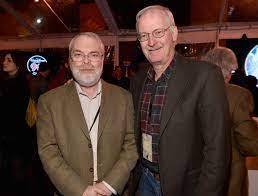
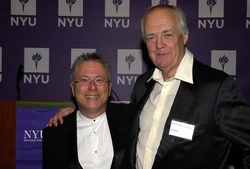
Background: By this time, Disney has not greenlit a fairy tale since the 90s, and when John Musker and Ron Clements come to them with an idea for "Rumpelstiltskin," they are open to it--albeit somewhat hesitantly; they've achieved unprecedented success with mostly original ideas, and the thought of going "back to basics" does bother them somewhat, with the fear that they'll be attacked for running out of ideas. Nonetheless, they let the film pass, scrapping their "Home on the Range" film. They enlist Alan Menken and Tim Rice for the music, and the team opts for a darker take than most Disney films (later said to have inspired Guillermo del Toro), and they consider briefly to do a non-European setting, but it's quickly scrapped, and a medieval England is considered, with particular inspiration from the Late Middle Ages to the Tudor period. While the specific setting and historical aspects (including pitches for Scandinavian, Slavic, Brazilian, and Iberian settings) are eventually removed for "magical purposes," Tudor-inspired fashion (eh, more 40% accuracy than 100%) is kept. They realize the unlikeability of having a king who marries a woman he threatens to kill three times over, and it's not a desirable trait for marketing, so they take influence from the king in "Cinderella," King Hubert from "Sleeping Beauty," and King Triton from "The Little Mermaid" to make a well-meaning but stressed and temperamental king who offers his much more benevolent son to the protagonist. They also scrap an early draft featuring a love triangle between the protagonist, the prince, and the antagonist, and the thought of doing 3D is considered, but eventually passed on. They planned on making the protagonist "older" (somewhere in her 30s), but Disney worries that this would alienate their younger audience, and move her to mid-20s--a bit older than they'd like, but not too young to be a mother without upsetting the parental audience.
(Note: This film will have been released in 2004, but several visual aids used are from media post-2004 and are serve to give the audience the idea of how the characters would look/act, rather than the influences Disney would use in the early 2000s.)
Plot

In a faraway land, a kingdom is wrought with misfortune. It is heavily in debt after a war has drained their coffers, and the economy has eroded. They're in debt to other countries, and not repaying them risks another way, and raising taxes could lead to civil war. A noble brags that his daughter will bring all the kingdom's problem to an end by turning straw into gold, and when the ill-tempered king hears of this, he gives her an ultimatum: spin several pounds of straw into gold for three days straight and marry his son, or her father will be executed for his insolence and she will be imprisoned for fraud. She undertakes this task successfully and falls in love with the much more amiable prince, and years later, she gives birth to a child. The day the child is to be christened, a guest bursts in, reminding her of a "deal" they made, revealing they spun straw into gold in exchange for gifts from her, the final of which being her child. When the princess begs to be let out of the deal, the creature humors her with a game: find their child, and discover the creature's name. With that, the fiend and her child disappears, and the princess only has 3 days to save them.
Characters



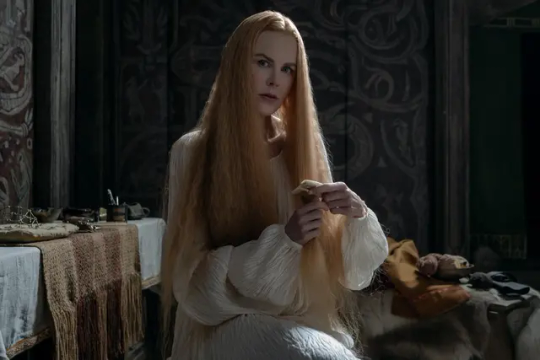
Aurelia--A quiet young noblewoman who lived a naive and sheltered life due to her upbringing, she was taught to be quiet and demure, and her station gave her a fairy tale look on life until she too was struck by poverty. Her father is an advantageous man whose kindness in these circumstances has been pushed down and seen as a sign of weakness. He had tried to suggest a match between Aurelia and Prince Aldous before, but was unsuccessful until he felt pressure by his contemporaries to brag about why his daughter deserved to marry the prince. When her father is threatened with death should she fail, she makes a deal with a mysterious creature that appears each night to spin gold with her, though they only tell her what they want after they do a day's work. In doing so, she gives up two things her deceased mother gave her that she promised never to give up: a necklace and a ring. But true to her word, she does, and she is horrified to realize a potential child is the price to be paid for a third night. When her son Caspian is kidnapped, she races to the far reaches of the country, following clues to the creature's hideout and their true name.

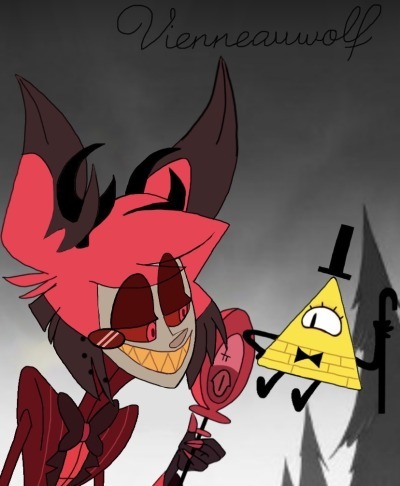
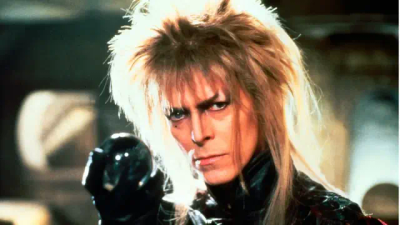

R--Hint, hint. People are always willing to make deals when they're desperate, yet they don't know what the price will be. No matter. R is quite a vicious fellow (or lady? Their form and associated pronouns change to fit the ocassion) who's all too happy to take advantage of the ocassion. Disney took the opportunity to make the shapeshifter's disguises appear as twisted parodies of iconic Disney characters, along with original designs. R is endlessly imposing and clever, managing to finagle Aurelia out of a necklace that tracks whoever she wants and a ring that can summon creatures to assist her--but since she had no idea about the true nature of these items, the only loss she felt from handing them over was of a sentimental nature. But now that they're in R's possession, they're able to not only track Aurelia's progress, but hinder it as well. Should she fail to find and name R in three days time, Caspian will become corrupted in R's domain and be their "son" forevermore. Tick tock, tick, tock...


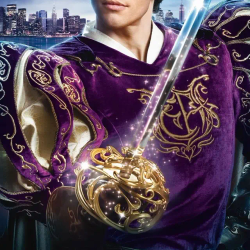
Aldous--The crown prince of Sceptimar and the oldest of three brothers, he has to deal with his overbearing father's expectations. After the death of his mother, he sought to get away from home and was educated abroad, and both situations contributed to his father's bitter and controlling attitude. He is sympathetic to Aurelia's situation, though is not pleased that his hand is offered as a prize in exchange for her success. Similar to his bride, he starts off as superficially kind, good at keeping up appearances and saying nice things, but when he joins his wife on retrieving their child, his compassion becomes genuine, and his grief helps him develop sympathy and empathy for others. That said, he hasn't completely lost his sense of haughtiness, but most say his demeanor contributes to his charm, in proper doses. His cleverness compliments Aurelia's, and his physical abilities (fighting, horseback riding, etc.) rubs off on her. To put it simply, what was once a "reward marriage" became a relationship where both parties help them become better people. Before Caspian was kidnapped, Aurelia feared Aldous would become controlling similar to his father.
Songs
Sacrifice--The story of how Sceptimar, once a prosperous kingdom, fell into disrepair thanks to continuous war, and was financially bankrupt, and King Osric hoped to marry his sons off to powerful princesses in exchange for a significant dowries.
Golden Opportunity--Lord Ricard is quick to fold to pressure, but when his contemporaries turn their annoyance at the king considering raising taxes on him, he makes a reckless brag that his daughter has been blessed with the ability to spin straw into gold, and they relay this to the king, not believing him.
Don't You?--In despair, Aurelia prepares to be imprisoned for life, but laments the possible death of her father, and a creature hears her praise, appearing and offering to help her three days in a row. Each day they finish a task, they ask her for something, to which she hesitates, and they remind her that they can expose her at any moment, and it will be her fault at this point if her father is executed.
Something For Me--Aurelia must venture to find Caspian before he is corrupted by R, and prince Aldous joins her to help rescue their child. R scoffs at their urge to make deals, as Aurelia already agreed to the original terms of the deals and they had no reason to bargain further with her. But they do have some magical items that Aurelia so graciously gave them, so it's not like they won't win this game anyway.
Life Without--Aurelia and Aldous lament on their childhood and situations that led them to their current predicament, with each of them blaming the other's father for their situation. That said, they've developed a deep love for each other, and they've gained so much from their union, not least of all a child that they adore above all else.
Who Are You (with "Don't You" reprise)--Based on the hints that they've left behind (and an accidental one), Aurelia is able to deduce R's true identity as well Aldous finding Caspian hidden in the domain. R, despite their rage, is bound to the last deal they made, and relinquishes the child to the prince and princess. But they warn the couple that this isn't goodbye; anytime someone is desperate, anytime someone wants something, Rumpelstiltskin will be there to grant their deepest desire.
Hope you enjoyed this! Lemme know if you have any questions. Technically the next original film from my revision of the post-renaissance era is "The Chronicles of Narnia," but it'd pretty much be the same as the live-action film, just animated and a musical, so IDK if I'll post it. So that probably means I'll just move onto "Tam Lin."
#disney#disney animation#rumplestiltskin#once upon a time#the other boleyn girl#red riding hood#maleficent#aurora#disney princess#sleeping beauty#disney prince#cinderella#tangled#hazbin hotel#gravity falls#bill cipher#alastor#jareth#labyrinth#joker#enchanted
14 notes
·
View notes
Text
Alternatives to Capitalism
Identifying economic systems that may be considered better than capitalism depends on the criteria used for comparison, such as equity, sustainability, and overall societal well-being. Here are some alternative systems, each with its potential benefits and drawbacks:
1. Social Democracy
Description:
A political, social, and economic philosophy within a capitalist framework that emphasizes social justice, government intervention, and the welfare state.
Benefits:
Equity: Strong focus on reducing inequality through progressive taxation and wealth redistribution.
Welfare: Comprehensive social safety nets, including healthcare, education, and unemployment benefits.
Regulation: Strict regulations on businesses to protect workers, consumers, and the environment.
Drawbacks:
Economic Efficiency: Potentially higher taxes and regulation can impact business incentives and economic efficiency.
Government Size: Large government programs may lead to bureaucratic inefficiencies.
Examples:
Scandinavian countries like Sweden, Norway, and Denmark.
2. Democratic Socialism
Description:
A political philosophy that advocates for political democracy alongside social ownership of the means of production, extensive welfare programs, and economic planning.
Benefits:
Social Ownership: Emphasis on worker cooperatives and public ownership can lead to more equitable wealth distribution.
Democratic Control: Democratic decision-making processes in economic planning aim to meet the needs of the majority.
Social Welfare: Extensive welfare programs ensure basic needs are met for all citizens.
Drawbacks:
Economic Efficiency: May face challenges in innovation and efficiency due to reduced profit motives.
Implementation: Transitioning to this system can be difficult and disruptive.
Examples:
Elements found in policies proposed by some political parties and movements in various countries, though not fully implemented anywhere on a national scale.
3. Eco-Socialism
Description:
A blend of socialism and environmentalism, focusing on social ownership and ecological sustainability.
Benefits:
Sustainability: Prioritizes environmental health and sustainable development.
Social Equity: Combines social ownership with efforts to reduce inequality.
Community Focus: Emphasizes local, decentralized economies and participatory democracy.
Drawbacks:
Economic Growth: May limit economic growth due to stringent environmental regulations.
Scalability: Localized economies may struggle to scale and integrate into global markets.
Examples:
Green political movements and policies, though not fully implemented as a national system.
4. Participatory Economics (Parecon)
Description:
An economic system based on participatory decision-making, worker and consumer councils, and equitable distribution of resources.
Benefits:
Democracy: Emphasizes direct participation in economic decision-making.
Equity: Focus on equitable distribution of income and resources.
Efficiency: Aims to align production with social needs and reduce waste.
Drawbacks:
Complexity: Requires significant coordination and participation, which can be challenging on a large scale.
Transition: Moving from a capitalist system to Parecon would be complex and require significant societal changes.
Examples:
Theoretical and has not been implemented on a large scale, but certain cooperative movements and local experiments reflect its principles.
5. Commons-Based Peer Production
Description:
An economic system that emphasizes collaborative, decentralized production, often facilitated by digital platforms, and focuses on shared resources (the commons).
Benefits:
Innovation: Encourages open collaboration and innovation.
Sustainability: Reduces resource waste through shared use and collaborative consumption.
Empowerment: Empowers individuals and communities through direct participation and control over production.
Drawbacks:
Monetization: Can struggle with monetizing contributions and ensuring fair compensation.
Scalability: May face challenges in scaling beyond certain sectors, especially those not easily digitized.
Examples:
Open-source software projects, Wikipedia, and other collaborative platforms.
Conclusion
Each of these systems offers alternative approaches to address some of the shortcomings of capitalism, such as inequality, environmental harm, and exploitation. However, they also come with their own set of challenges and trade-offs. The best system may involve a hybrid approach, incorporating elements from various systems to balance economic efficiency, social equity, and environmental sustainability.
#philosophy#knowledge#learning#chatgpt#education#economics#capitalism#EconomicSystems#AlternativeEconomies#SocialDemocracy#DemocraticSocialism#EcoSocialism#ParticipatoryEconomics#CommonsBasedEconomy#SustainableEconomy#EquitableEconomy#EconomicInequality#SocialWelfare#WorkerCooperatives#EnvironmentalSustainability#ProgressiveTaxation#EconomicPlanning#GovernmentIntervention#SocialOwnership#EconomicInnovation#EconomicEfficiency#HybridEconomies
9 notes
·
View notes
Note
I like to learn, so if you don’t mind, could you explain the parties each candidate represents in that picture of the polling you shared please? I saw the other ask about the parties you would vote for, but I really don’t know much about Irish politics. Interested to learn about your parties and how you think the current election will go and what that means for you!
- US Anon with Irish heritage
So yea basically in the simplest way I can explain it in Ireland we have 2 centre right parties fianna fail and fine gael so we have dominated Irish politics since the founding of the State.
TheY basically agreed the same things for the most part and have a very similar voting base the Divide goes back to the formation of the State (FF Wanted full independence straight away FG wanted stop fighting the British and get at least some bit of Ireland independent, leaving the six counties of what we now know as Northern Ireland)
The way our voting system works means you have the chaos for which is currently happening in on of the constituency of Cork where you have the two left parties fighting for the last seatand there within a vote of each other. One of them will get eliminated on the next count. Weirdly this happens a lot

youtube
Are voting system is an impatient person's worst nightmare but I think it is actually fair
Roughs someup about our parties/what I think of them
fianna fail (ff): centre right, destroyed our economy in 2008, on track to be the biggest party in the country, historically would have been more of a working/middle class vote.
fine gael (FG): have been in power for the last 14 years, also centre right (more economically conservative), the real cool girl give us nothing energy, there base is older voters. May have spent over 100,000 on a printer. The leader cannot take criticism he is annoying af.
Sinn Fein (SF): center left. Historically was the political face of the IRA, fairly progressive but have lost a lot of class votes this election due to their stance on immigration being seen as too Pro migrant. More popular with young people than older people due to the IRA ties, also very popular further north.
Social Democrats (SD): left. Their leader literally gave birth on polling day. They take a lot of inspirations from Scandinavian ideas. Very popular with young people and more urban areas. Very similar ideas to the Labor Party. Very big on providing more housing and better health and disability services. Very similar stances with the Labour Party though they tell everyone they're very different. their on the up, last 2 elections been gaining more and more seats.
Independences (I): they are strange bunch. They run independently have a parity so you have people from the right of right and then you have people on the left. Tend to be from more rural constituencies.
My opinion on the election are pretty mixed tbh. It's pretty much probably going to be FF/FG back in power which as a young person in Ireland is not really great. A lot of their policies are in favour of corporations and older people. They do not offer anything realistic for a young person in Ireland today. There's not much investing in the future, every year we getsmall bonuses in money instead of actual investment in services. Pretty much every public service in Ireland has been underfunded for almost two decades and we have 16 billion set aside for 'a rainy day'.
Majority of Young people will never be able to afford a home, rent are insane (there are dozens of TDs (member of Parliament) who are landlords and vote down any legislation that protects renters), there's thousands of people homeless, the health service is on its knees (like for as long as I can remember there are daily updates of how many people I waiting on trolleys in emergency rooms announced every hour on the radio in the news updates), our transport links are in shit (they've been saying since the year 2000 that they're going to build an underground in Dublin. Has that happened? Nope), thousands of young people have to leave for any real quality of life, there's hundreds of children out of school because there's not enough places in special needs classes for special schools for kids with special needs.
with FF/FG for a young person in Ireland it feels like there's no political will for them to do anything to improve the country because they know they have a bank of voters that they can easily get re-elected from (older people who own their home).
3 notes
·
View notes
Text
City Hopping on Scandinavian Airlines Economy Class: KEF-OSL-TOS-OSL
Europe has one of the most mature aviation systems in the world. Within it, an ecosystem of airlines from a diverse range of countries and operating models thrived. Most non-European airlines ply the hubs, while the European airlines also operated the intra-European flights – some even via subsidiaries – to complement their international routes. We had flown in from Singapore as part of our…
#A320neo#Airbus#Economy Class#flight review#Iceland#introverted traveller#jetsetter#Keflavik#live life love#Norway#Oslo#Scandinavian Airlines#travelogue#trip review#Tromso
0 notes
Text
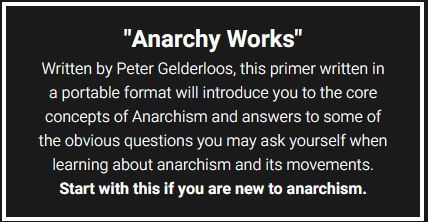
Chapter 3. Economy
Who will take out the trash?
If everyone is free to work as they choose, who will take out the trash or perform other undesirable jobs? Fortunately, in a localized, anti-capitalist economy, we could not externalize, or hide, the costs of our lifestyle by paying someone else to clean up after us. We would have to pay for the consequences of all our own actions — rather than paying China to take our toxic waste, for example. If a necessary service like garbage disposal were being neglected, the community would quickly notice and have to decide how to handle the problem. People could agree to reward such work with small perks — nothing that translates into power or authority, but something like getting to be first in line when exotic goods come into town, receiving a massage or a cake or simply the recognition and gratitude for being a stand-up member of the community. Ultimately, in a cooperative society, having a good reputation and being seen by your peers as responsible are more compelling than any material incentives.
Or the community could decide that everyone should involve themselves in these tasks on a rotating basis. An activity like garbage collection does not have to define anyone’s “career” in an anti-capitalist economy. Necessary tasks no one wants to perform should be shared by everyone. So instead of a few people having to sort through garbage their entire lives, everyone who was physically able would have to do it for just a couple hours each month.
The Christiania “free state” is a quarter in Copenhagen, Denmark, that has been squatted since 1971. Its 850 inhabitants are autonomous within their 85 acres. They have been taking out their own trash for over thirty years. The fact that they receive about one million visitors a year makes their achievement all the more impressive. The streets, buildings, restaurants, public toilets, and public showers are all reasonably clean — especially for hippies! The body of water that runs through Christiania is not the cleanest, but considering that Christiania is tree-covered and automobile free one suspects most of the pollution comes from the surrounding city that shares the waterway.
Residents have built dozens of the houses now standing in Christiania using innovative eco-designs. They also use:
solar power, wind power, composting and a whole host of other eco-friendly innovations. A method of filtering sewage through reed beds, which means water coming out of Christiania is as clean as that coming out from the rest of Copenhagen’s treatment plants, has helped the commune be shortlisted for a pan-Scandinavian award for ecological living.[38]
Different people interviewed had different conceptions of how Christiania was kept clean, suggesting a sort of dual system. A newcomer said that you cleaned up after yourself, and when you felt like doing some extra picking up, you did. An old-time resident who was more involved in decision-making explained there was a garbage committee, answerable to the “Common Meeting,” responsible for the bottom-line of keeping Christiania clean, though clearly voluntary assistance and cleanliness by all the residents was the first line of defense.
#anarchism#daily posts#communism#anti capitalist#anti capitalism#late stage capitalism#anarchy#anarchists#libraries#leftism#anarchy works
5 notes
·
View notes
Text
"Mobile Payment Systems: The Shift Towards a Cashless Society"
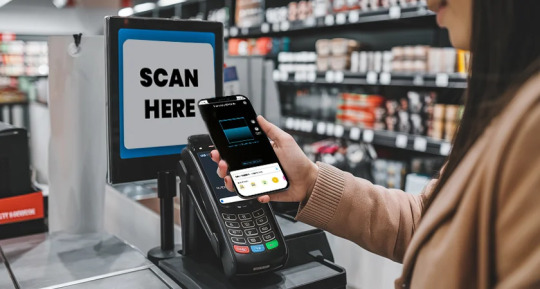
Cash is no longer the "King"! Cashless payments are a result of the complete change in the payment landscape brought about by the digital age.
Credit cards were the first form of cashless payment fintech innovations in the 1990s. The electronic banking system became widely used throughout that same decade. The developments in cashless payments carried on after that.
Well-known brands like Apple Pay and PayPal entered the fintech innovations scene. Plus, nobody likes to carry cash these days. Everyone wishes to gain from cashless transactions. Though cash is still important in many places, the globe is gradually shifting to cashless transactions.
There has been an increase in cashless transactions worldwide, according to the most recent Statista survey. There will be 2297 billion cashless transactions worldwide by 2027. The statistics above demonstrate the exponential rise of cashless transactions.
Mobile Payment Systems: The Shift Towards a Cashless Society
Globally, cashless transactions are growing increasingly typical as card and digital payments spread. Digital payment methods like debit and credit cards, smartphone payment apps, and others are increasingly popular for everyday transactions around the world.
Contactless payments, such as digital wallets and tap-to-pay cards, have become increasingly popular. The COVID-19 pandemic further accelerated this trend due to the perceived safety of contactless payments. Mobile payment systems like Apple Pay and Google Pay have made it even easier to make cashless transactions resulting in an e-commerce growth. Global digital transactions are predicted to reach over $14 trillion by 2027. Scandinavian countries like Sweden and Norway have already reached a cashless point-of-sale transaction rate of over 90%. In Asia, mobile payments are rapidly growing, with China leading the way through services like WeChat Pay and Alipay e-commerce growth. However, cash is still preferred in some regions due to factors like informal economies, limited access to banking services, and mistrust of financial institutions. Overall, more and more people are embracing digital payments for their convenience and expanding possibilities. Efforts are being made by governments and financial organizations to support this shift while considering the needs of all individuals.
What Are Digital Wallets, and How Do They Work?
Due to the pandemic, contactless payments like digital wallets have become very popular. Digital wallets store payment methods for easy purchases using a smartwatch or smartphone. They can also hold coupons, tickets, and cards and allow money transfers to others.
How digital wallets work
Different digital wallets process payments using various technologies:
NFC stands for near-field communication: If two devices are positioned adjacent to one another, this enables information sharing between them. This technology is used by Google Pay and Apple Pay. The retailer needs to have card readers that are compatible with these digital wallets at the point of sale.
MST stands for magnetic secure transmission: Similar to when a credit card is swiped on its magnetic stripe, this produces a magnetic signal. The card reader at the payment terminal receives the signal. NFC and MST technologies are both used by Samsung Pay.
QR codes: You may use the camera on your smartphone to scan these barcodes for secure transactions. For instance, you can create a QR code using the PayPal app that enables you to pay for items in stores using your account.
Some digital wallets, such as the Starbucks app, are "closed," meaning they can only be used at that particular store. In contrast, the digital wallet examples above can be used at any retailer that accepts them.
The Technology Behind Mobile Payments
The manner in which consumers make payments around the world has been drastically changed by mobile payment technologies. The fundamental technologies that make this possible are:
NFC:With this technique, data may be exchanged through secure transactions between two devices that are positioned just a few centimeters apart. NFC facilitates rapid and safe transactions by enabling smartphones and payment terminals to communicate.
QR codes:To start a transaction, customers can use the camera on their smartphone to scan "quick-response" codes. The codes point the user to a website or payment application when they are scanned.
SMS-based transactions:Businesses can use this technique to send text message instructions for payments, which is especially helpful in areas where smartphone adoption is low. A series of text messages, including a confirmation code at the conclusion of the transaction, are used by customers to complete purchases.
Digital wallets:In order to enable customers to make payments using their phones rather than paper cards, digital wallets securely hold credit card information on a mobile device. Transport tickets, vouchers, and loyalty cards can all be kept in digital wallets.
Encryption and tokenization:In mobile payments, sensitive data is encrypted. Further enhancing security is tokenization, which uses a special digital identification (called a "token") to execute payments without disclosing account information.
Biometric verification:Mobile devices frequently come equipped with biometric sensors, like facial recognition or fingerprint scanners, which add an extra degree of security to transactions.
Cloud-based payments:Payment details are kept on cloud servers by certain mobile payment solutions. Payments are accepted from any device, and unified security management is in place.
Host card emulation (HCE):With an NFC-capable device, HCE enables a phone to function as a physical card without depending on access to a secure element, or chip, which holds private information like credit card numbers.
Application programming interfaces (APIs):APIs allow apps to talk to banking systems and other applications, which makes transactions easier.
Thanks to these technologies, consumers can now use their mobile devices for a wide range of payment-related tasks, such as online shopping, paying for goods and services at physical locations, and transferring money between people.
Cryptocurrency Transactions: A New Frontier in Mobile Payments
The number of people who own bitcoin is growing rapidly, with over 400 million worldwide. This has led to an increase in demand for cryptocurrency payment options in everyday life. Starting a cryptocurrency transaction is easy, as users can simply use their mobile crypto wallet app to send payments to vendors. Specialized payment gateways are also available, which allow businesses to accept cryptocurrency and convert it to regular money quickly. By accepting cryptocurrency payments, businesses can reach a larger customer base and increase their revenues. Many companies, including e-commerce stores, gaming platforms, and Forex platforms, are already accepting bitcoin payments. The best part is that bitcoin payments are faster and cheaper than traditional banking methods.
Advantages of Using Mobile Payment Systems
Advantages of widely used Mobile banking:
Reduce expenses by eliminating costly equipment and setup.
Improve cash flow with faster payments.
Easily integrate loyalty programs for repeat purchases.
Gain insights from customer data for personalized strategies.
Increase customer convenience by accepting payments anytime, anywhere.
Stay competitive by offering multiple payment options.
Mobile banking enhances payment security with encrypted codes.
Simplify bookkeeping with collected business information.
These benefits improve the customer experience and make accepting payments on the go easier.
Conclusion:
The future of payments will undoubtedly revolve around preserving the integrity of cash as a viable payment option, while concurrently expanding and enhancing digital payment solutions. Empowering individuals to select their preferred transaction method based on personal circumstances and preferences is of utmost importance. In order to construct an all-encompassing financial system that caters to the requirements of every participant, it is imperative for businesses, policymakers, and financial institutions to establish resilient digital payment systems alongside a sturdy infrastructure for cash.
FAQ:
What are mobile payment systems?
Mobile payment systems allow you to make payments using your smartphone or mobile device, typically through apps or digital wallets like Apple Pay or Google Wallet.
How secure are mobile payment systems?
Mobile payment systems are generally secure, using encryption, tokenization, and biometric authentication to protect your data. However, security also depends on user practices like keeping your device and apps updated.
What are the benefits of using mobile payment systems?
Mobile payment systems offer convenience, speed, and security. They also support contactless payments, track spending, and often integrate with loyalty programs.
How do mobile payments impact global economies?
Mobile payments boost global economies by increasing financial inclusion, speeding up transactions, and supporting digital commerce, especially in emerging markets.
What technologies are driving the growth of mobile payment systems?
Key technologies include Near Field Communication (NFC), QR codes, biometric authentication, and blockchain, all of which enhance security and convenience in mobile payments.
5 notes
·
View notes
Text
I tend to think that most fears about A.I. are best understood as fears about capitalism. And I think that this is actually true of most fears of technology, too. Most of our fears or anxieties about technology are best understood as fears or anxiety about how capitalism will use technology against us. And technology and capitalism have been so closely intertwined that it's hard to distinguish the two. Let's think about it this way. How much would we fear any technology, whether A.I. or some other technology, how much would you fear it if we lived in a world that was a lot like Denmark or if the entire world was run sort of on the principles of one of the Scandinavian countries? There's universal health care. Everyone has child care, free college maybe. And maybe there's some version of universal basic income there. Now if the entire world operates according to — is run on those principles, how much do you worry about a new technology then? I think much, much less than we do now. Most of the things that we worry about under the mode of capitalism that the U.S practices, that is going to put people out of work, that is going to make people's lives harder, because corporations will see it as a way to increase their profits and reduce their costs. It's not intrinsic to that technology. It's not that technology fundamentally is about putting people out of work. It's capitalism that wants to reduce costs and reduce costs by laying people off. It's not that like all technology suddenly becomes benign in this world. But it's like, in a world where we have really strong social safety nets, then you could maybe actually evaluate sort of the pros and cons of technology as a technology, as opposed to seeing it through how capitalism is going to use it against us. How are giant corporations going to use this to increase their profits at our expense? And so, I feel like that is kind of the unexamined assumption in a lot of discussions about the inevitability of technological change and technologically-induced unemployment. Those are fundamentally about capitalism and the fact that we are sort of unable to question capitalism. We take it as an assumption that it will always exist and that we will never escape it. And that's sort of the background radiation that we are all having to live with. But yeah, I'd like us to be able to separate an evaluation of the merits and drawbacks of technology from the framework of capitalism.
—Ted Chiang [major SF writer dude], via Jason Kottke
These are good points, although, like most usages of the term “capitalism” it’s blurring the economic definition of capitalism with the US business model and with market economies in general.
When automated looms were created, traditional weavers would have faced difficulties whether or not the looms were run by capitalist factories. If something you produce and sell can now be created more cheaply, you can’t keep asking the old price, or rather you can, but most people won’t buy your cloth anymore.
Without capitalism, companies wouldn’t have been able to raise money to build the expensive mills. So no cheap cloth and most people continue to get by with one or two changes of clothing. Or rich nobles build factories and we're back to something like feudalism. Or the Crown builds factories and decrees what production and prices and wages should be, which failed pretty spectacularly when Russia and China tried it last century.
2 notes
·
View notes